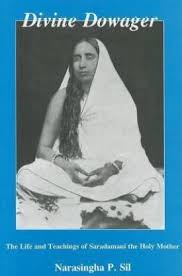
Divine Dowager: The Life and Teachings of Saradamani, the Holy Mother PDF
160 Pages·2004·9.1618 MB·other
Most books are stored in the elastic cloud where traffic is expensive. For this reason, we have a limit on daily download.
Preview Divine Dowager: The Life and Teachings of Saradamani, the Holy Mother
Description:
Of the three principal personalities of the Ramakrishna Order - Sri Ramakrishna Paramahamsa (birthname Gadadhar Chattopadhyay) himself, his famous disciple Swami Vivekananda (premonastic name Narendranath Datta), and his wife Saradamani Chattopadhyay - the last mentioned of the holy trinity occupies a unique place. Sarada's childhood and adolescence were spent in her parental home even after marriage at five; from her adult teens she lived with her husband who chose to remain a celibate as part of his ascetic exercises. The uniqueness of her story consists primarily in her own strength of character and personality that compensated her loss of natural motherhood by transforming herself into a mother to innumerable devotees and disciples who became her surrogate children. Sil's pioneering biography demonstrates, on the basis of a number of eyewitness accounts in Bengali hitherto inaccessible to nonspecialists, as well as the emerging feminist studies in India and abroad, how Sarada, a barely literate rustic woman and the demure wife of a popular godman, discovered sources of personal empowerment and fulfillment by appropriating the hegemonic patriarchal norms of her society. This volume shows how she emerged as the Dowager leader of a preeminently male monastic order - guru, mother, and mentor - all in one, and claims that Saradamani's life thus has a unique appeal for women of all times and cultures.
See more
The list of books you might like
Most books are stored in the elastic cloud where traffic is expensive. For this reason, we have a limit on daily download.
